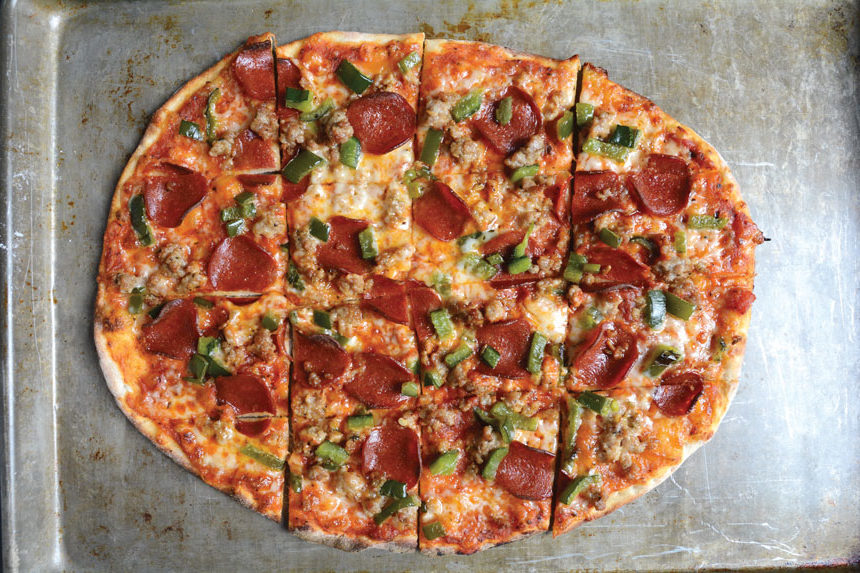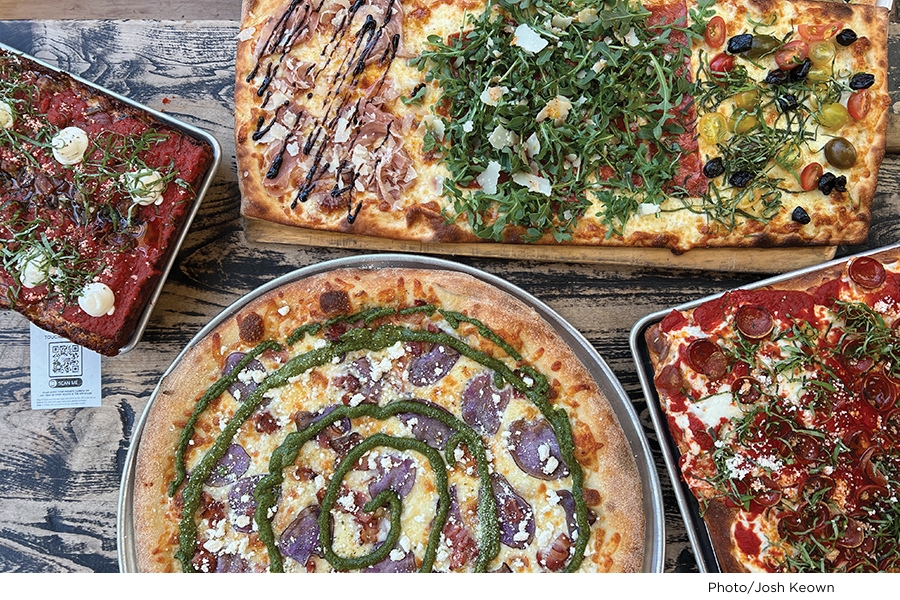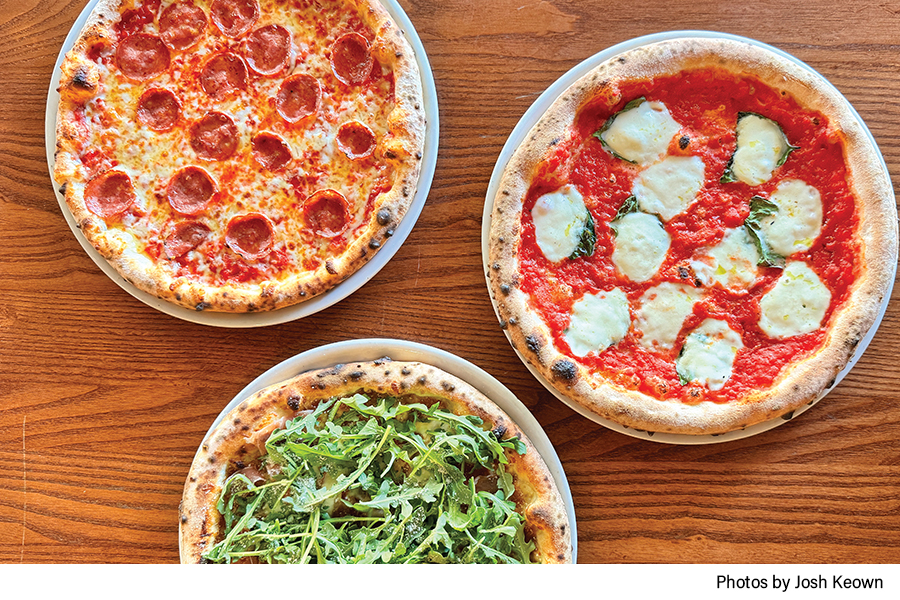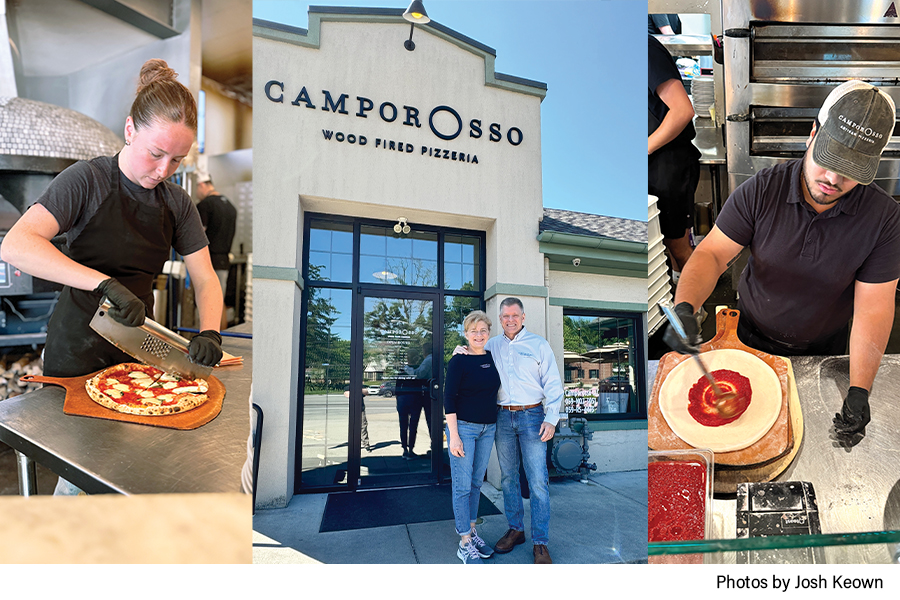Though many pizzerias don’t think much about filing taxes until the calendar turns and deadlines approach, getting a jumpstart on tax preparation in the year’s final quarter provides numerous benefits
More than two centuries ago, American statesman Benjamin Franklin penned a note to French scientist Jean-Baptiste Leroy identifying two certainties in life: death and taxes.
One might wonder if Franklin owned a restaurant given the grim view of taxes he shares with so many of the nation’s restaurant owners.
For as much joy as owning a pizzeria can deliver, taxes can be – and often are – the proverbial buzzkill, a necessary evil prone to sparking headaches, stress and costly realities. Yet, taking a proactive approach to taxes, especially throughout the calendar year’s fourth quarter (Q4), can spur a more streamlined and efficient effort that preserves time, cash and sanity while also driving overall performance.
“When it comes to taxes, so many business owners don’t want to think about them, talk about them or plan for them, but there’s a tremendous amount of benefit that can come from getting a jumpstart on end-of-the-year taxes,” says Drew Wolf, a certified public
accountant (CPA) with Minnesota-based Boyum Barenscheer.
Taking a proactive approach
In the fall, Wolf suggests pizzeria owners ask their accountant for a complete checklist of the items needed for tax preparation. With that in hand, operators can assemble – or at least ensure they have the capacity to provide – all the figures and documentation necessary for a streamlined filing process.
“The biggest headaches each year come from the books and records not being in order,” says Marshall Varano, a tax partner at the San Diego office of CohnReznick, one of the nation’s leading accounting firms.
Varano, who specializes in the hospitality sector, recommends restaurant owners connect with their bookkeeper to gather updated numbers that can then be shared with the accountant during an early Q4 meeting to estimate one’s year-end tax burden. By mid-December, ownership should check in with the bookkeeper again to make sure the books remain current and will be successfully closed when the calendar turns.
“It’s true you can always get an extension, but the tax due will be the tax due regardless,” Varano reminds.
By January’s end, businesses must also begin issuing 1099s to vendors from the previous year. During Q4, Wolf urges operators to confirm they have complete and accurate W9s on hand. If not, they will be chasing those down in January under deadline.
“I go back and forth with clients on this documentation more than anything else, and it’s a complete hassle for all of us,” Wolf says.
A proactive approach to tax preparation and filing generates important benefits for the business, including:
An improved ability to plan
As Q4 gets underway, Wolf suggests restaurant operators sit down with their accountant for an earnest discussion about the restaurant’s performance and to gauge the year’s estimated taxes based on the business’ year-to-date performance, its trajectory and previous Q4 results. Getting a general sense of one’s tax bill can inform planning for the following year, including whether ownership renovates the restaurant, purchases equipment, hires, expands or even sells.
“The sooner you can get a handle on taxes, which can drastically affect cash flow, the better you can plan for the year ahead,” Wolf says.
Identify problem areas and leverage cash-boosting programs
Tax planning during Q4 provides ownership a multi-month window to address potential problem areas or leverage existing tax-year programs.
Many restaurant owners, for example, exist as partnerships or S-corps and extract money from the business throughout the year as distributions. If owners do not have a sufficient tax basis to cover these distributions, however, then the distributions become taxable income.
“But if you check with your CPA during the fall and find you’ve taken out too much in distributions, you have months to fix this potential headache,” Varano says. “You don’t want a surprise, right?”
Owners can also take advantage of compelling tax credits or other capital-boosting programs. Bonus depreciation, for instance, sits at 100 percent for 2022. Starting in 2023, however, it rachets down 20 percent each year.
“So, if you think you’re going to purchase equipment in early 2023, consider doing it before 2022 closes to capitalize on bonus depreciation now,” Varano says.
A better chance to avoid attention from the Internal Revenue Service (IRS)
Errors on tax forms can draw the attention and ire of the IRS, which business owners generally prefer to avoid.
The earlier accountants receive financial statements, the earlier they can spot miscues and fix them, says Varano, reminding that some time-sensitive items must be addressed by year’s end.
“Once the books are closed, though, it’s tougher to fix things,” Varano says.
As February rolls into March and tax preparation season intensifies, accountants are then hustling to complete work for multiple clients, which increases the likelihood of human error. If, however, restaurant owners can collect and organize their information for their accountant by mid-January – a result best achieved by doing tax prep work before the year closes – then they gain an early spot in line with fresh accountants.
“Mistakes do happen, but a more controlled process decreases the risk of reporting errors and expedites the turnaround time,” Varano says.
3 important – and often missed – tax credits for restaurants
Marshall Varano, who provides tax and consulting services to help restaurants boost profitability at the San Diego office of CohnReznick, says restaurant owners should check with their CPA to ensure they are investigating three cash-saving, though often overlooked, tax credits:
- Employee Retention Credit (ERC): The federal government launched the ERC in the early days of the COVID-19 pandemic to encourage businesses to keep employees on their payroll. Even restaurants who did not take advantage of this credit in 2020 or 2021 can file an amended return in 2022 to receive these funds, which can be substantial.
- FICA Tip Credit: Restaurants can claim a credit against their federal income tax based on the share of FICA and Medicare taxes they pay on the tip income their employees report.
- Work Opportunity Tax Credit (WOTC): The time-sensitive WOTC allows restaurants to claim up to $9,600 when hiring a qualified employee from one of nine target groups, including military veterans, ex-felons and so-called “summer youth employees.”
Daniel P. Smith Chicago-based writer has covered business issues and best practices for a variety of trade publications, newspapers, and magazines.







